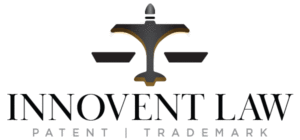Navigating the Patent Landscape: Understanding When and When Not to Patent Your Idea
In the world of inventions and intellectual property, deciding whether to patent your idea is a significant decision that comes with various implications. This blog post aims to delve into the nuanced considerations surrounding the patenting process, examining the reasons why you might decide against patenting an idea, as well as the pros and cons associated with it. We’ll reference valuable resources from Innovent Law to enhance your understanding and decision-making process.
The Decision Against Patenting
Why You Shouldn’t Patent Something:
5 Reasons Not to Patent an Idea:
- High Costs and Long Process: Understanding how much patents cost can deter inventors. The process can be expensive and time-consuming, with no guaranteed success (Innovent Law’s guide on patent costs).
- Public Disclosure: Filing a patent requires disclosing all details of your invention, which then becomes public information (Should you tell people about your invention?).
- Market Validity: The market life of your product may not justify the patent’s lifespan.
- Legal Challenges: Owning a patent means being prepared to enforce it, which can be costly and complex.
- Rapid Technological Change: In fast-evolving sectors, the time it takes to obtain a patent could render the invention outdated.

The Pros and Cons of Patenting
Pros:
- Protection: A patent protects your invention from being made, used, or sold by others for a period of time.
- Monetization: Through licensing or sales, patents can become a source of revenue (Patent licensing guidelines).
- Competitive Edge: Holding a patent can give you a significant advantage in the market.
Cons:
- Cost: The process involves significant patent idea cost and legal fees (Understanding patent filing fees).
- Complexity: The process is complex and requires detailed legal and technical knowledge (The patent process explained).
- Disclosure: You must disclose your invention to the public.

To Patent or Not to Patent?
Deciding whether to patent involves weighing the aforementioned factors and considering your invention’s unique circumstances. Ask yourself:
- Is Your Invention Patentable? Not all ideas are eligible for patents. Understand the criteria for what makes an invention patentable (Is your invention patentable?).
- Can You Bear the Cost and Effort? Evaluate whether the potential benefits outweigh the costs and efforts involved in the patenting process.
- Do You Have a Strategy? Consider if you have the means to enforce the patent and whether it aligns with your business strategy.
Further Guidance:
- Starting the Patent Process: Learn how to initiate the process (Starting the patent process).
- Provisional vs. Non-Provisional: Decide between filing a provisional application for immediate protection or going straight for the non-provisional patent (Provisional patent application).
- Patent, Trademark, or Copyright: Understand the differences and decide which form of protection best suits your needs (Choosing between patent, trademark, or copyright).
If you’re wrestling with the decision to patent, or if you’re ready to begin the patent process but need expert guidance, reach out to Innovent Law. Our team, equipped with industry-specific knowledge and extensive experience, can provide the insights and support you need. Discover your next steps with Innovent Law’s resources, whether you’re contemplating how to patent ideas or looking to avoid common patent mistakes.

Is Your Idea Ready for Patenting? Download Our Checklist
Deciding whether to file a patent is a significant step that requires careful consideration and thorough analysis. To aid you in this crucial process, we’ve created a comprehensive Patentability Checklist. This resource is designed to guide you through the essential factors that determine whether your invention is ready for patenting.
Our Patentability Checklist will help you assess:
- The novelty and uniqueness of your invention.
- The inventive step or non-obviousness compared to existing knowledge.
- The practical applicability and utility of your invention.
- Compliance with legal standards and patentable subject matter.
- Adequacy of disclosure and documentation for replicating your invention.
- Market potential and commercial viability to justify the patent investment.
By systematically reviewing each item on this checklist, you can gain a clearer understanding of your invention’s strengths and areas for improvement. This will not only help in making an informed decision about pursuing a patent but also in preparing a stronger application should you choose to proceed.
Don’t navigate the complex patent landscape alone. Download our Patentability Checklist now and start evaluating your invention’s patent potential today. Fill out the form to download the checklist.
And if you’re seeking expert guidance or have any questions regarding the patent process, contact Innovent Law.
Our team is here to support you every step of the way, from initial idea assessment to securing your patent rights.
Embarking on the patent journey is a significant decision that impacts the future of your invention. Equip yourself with the right knowledge and resources to ensure that your innovative ideas receive the protection and recognition they deserve

